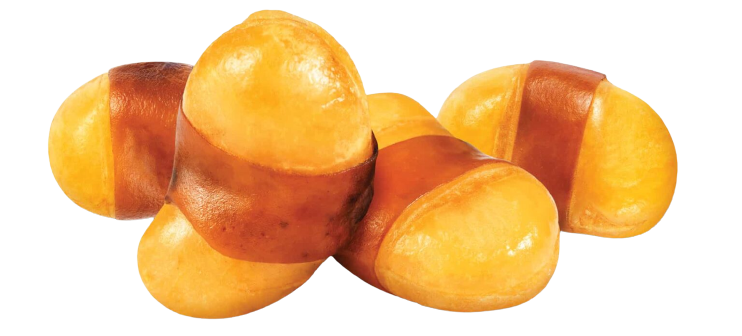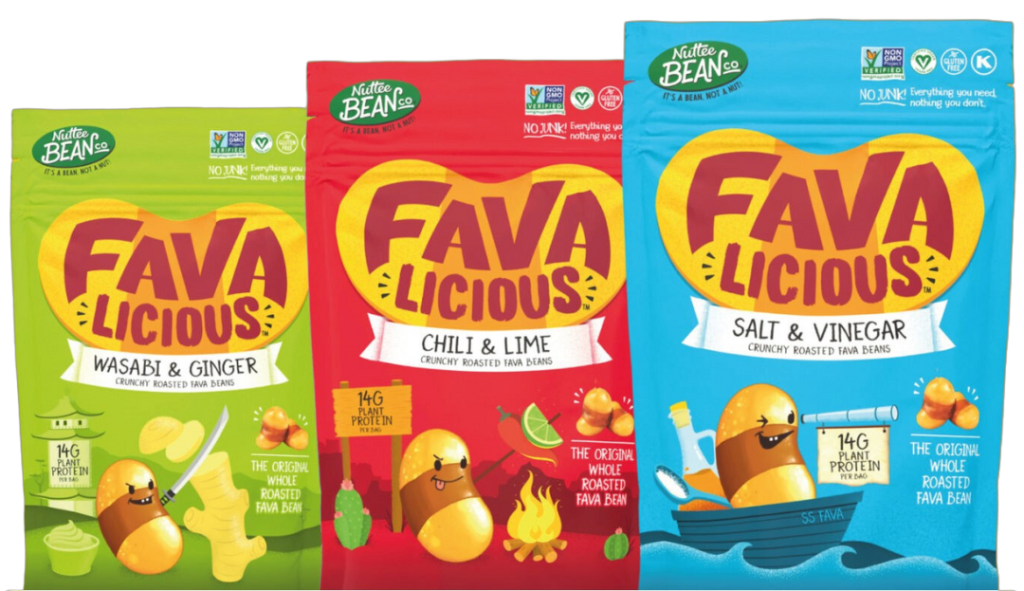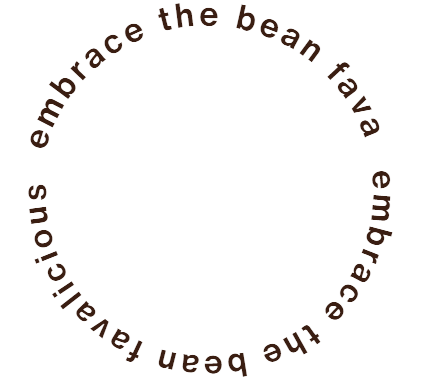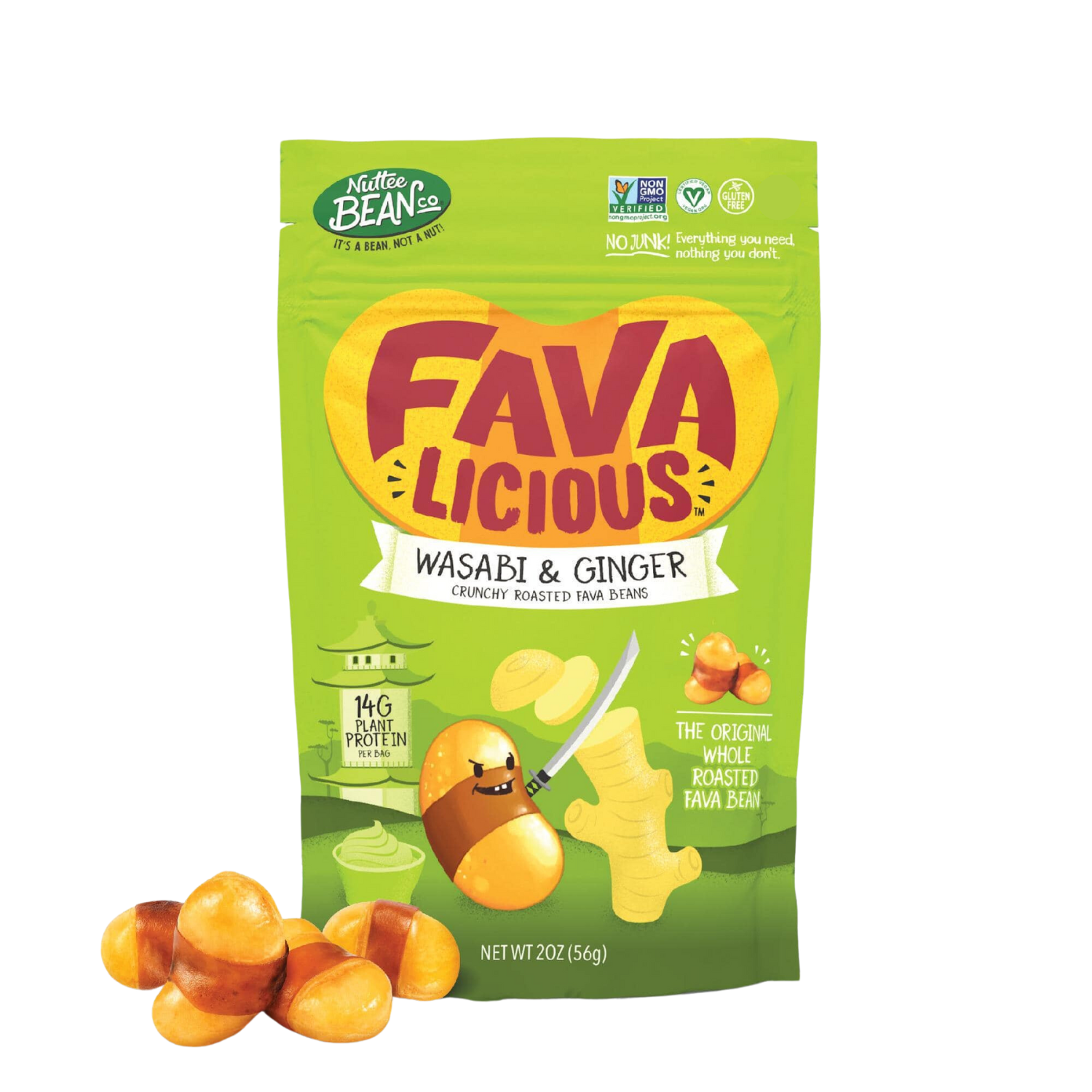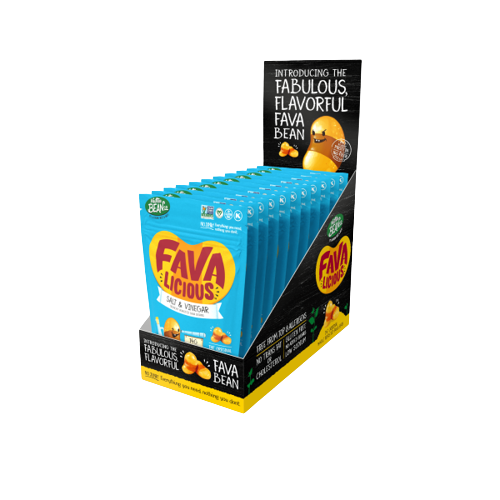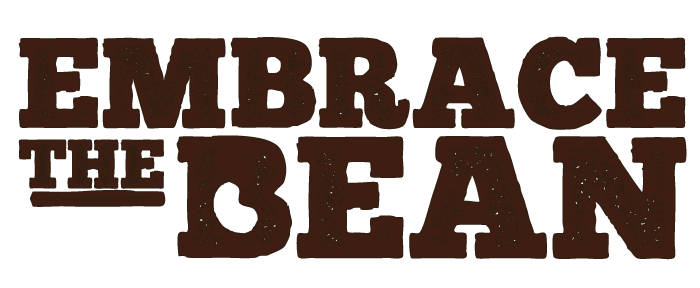
Keto Friendly | 5g Net Carbs | No added Sugars
Favalicious Beans
Our Favalicious beans have a great nutty flavor, but they’re produced in a dedicated fava facility and we can guarantee they’ve never even met a peanut. I wonder if they’d get along…

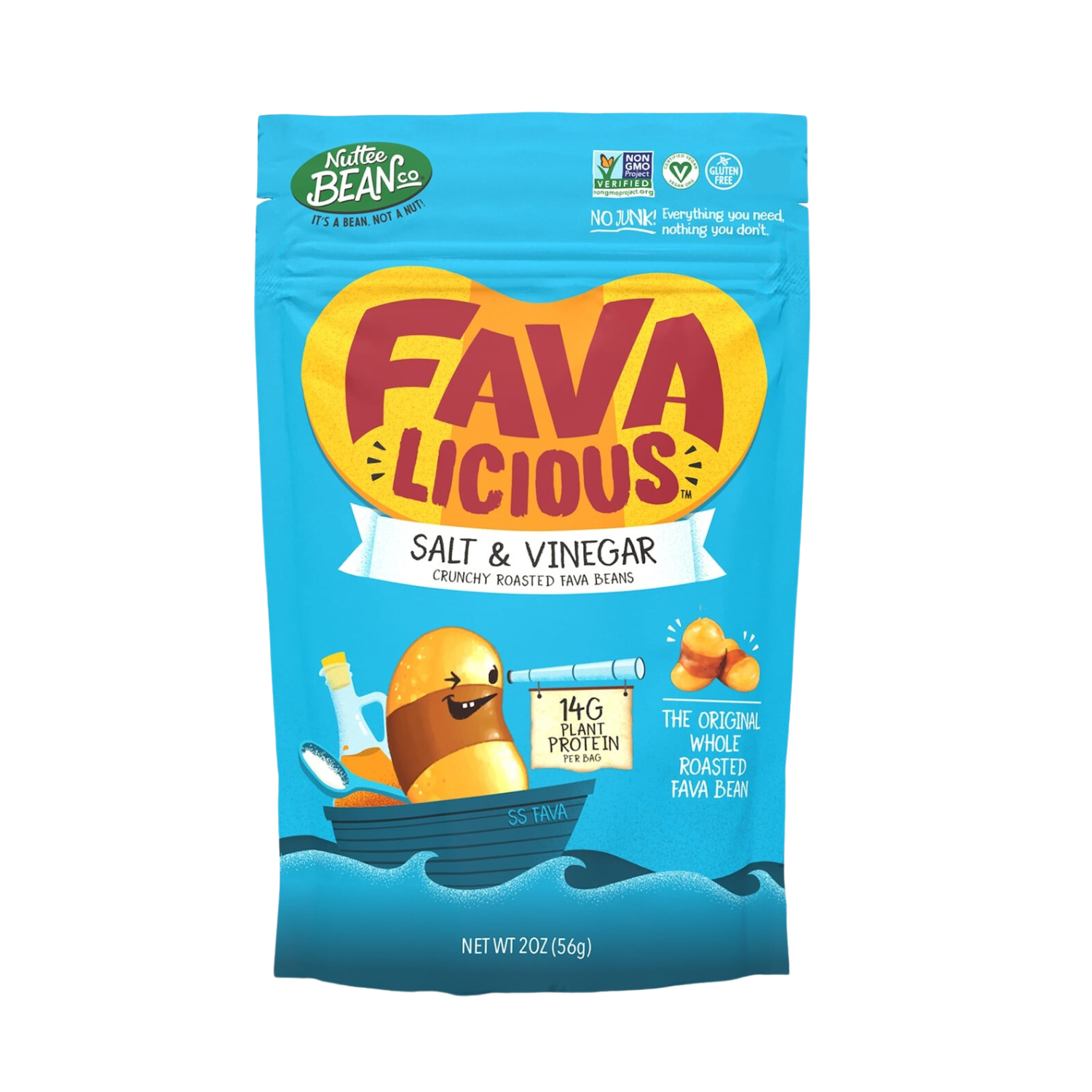
Salt & Vinegar
An old school classic, not a has-bean!

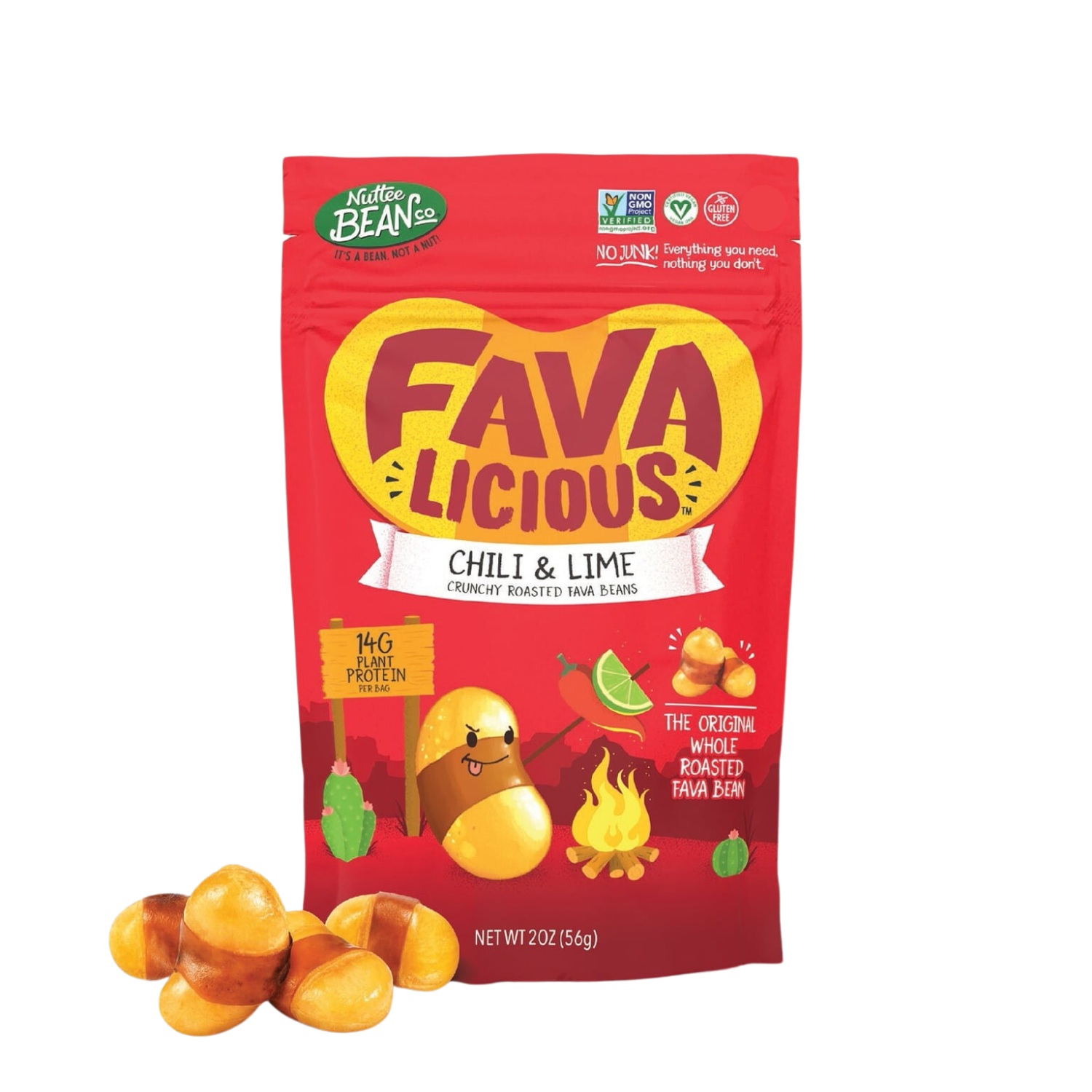
Chili & Lime
Is it getting hot in here? The lime arrives just in time to put out the fire starting in your mouth!

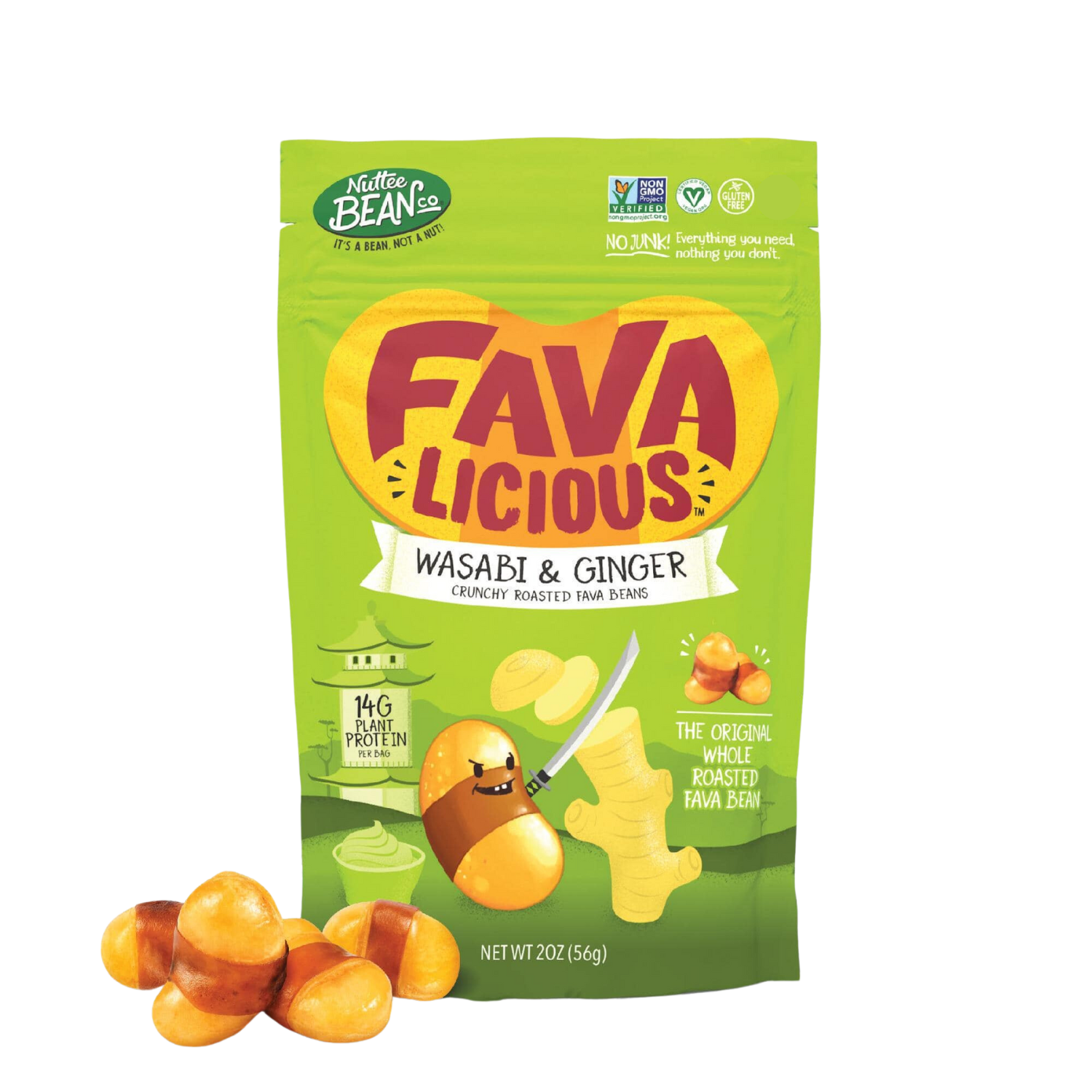
Wasabi & Ginger
A BEANORMOUS wasabi punch to the taste buds (in a good way), soothing ginger to make it all okay again.
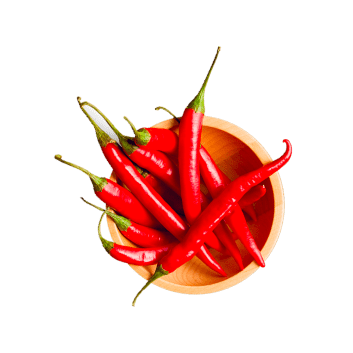

Fava Bean Snacks that start in a pod and are roasted to crunchy perfection! All natural and 14 grams of plant protein to become your new FAVArite snack.
Our Products
Nuttee Bean Co. TM are determined to make you eat your vegetables. We produce snacks that are delicious, nutritious, vegan, gluten free, all
-
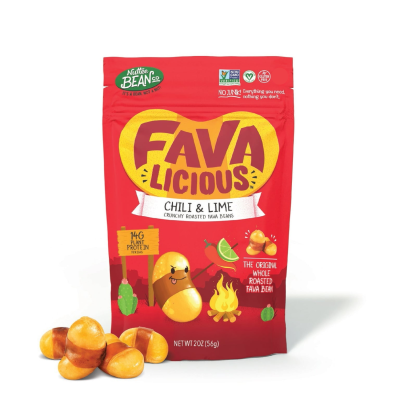
Favalicious Chili & Lime Roasted Beans (12 Pack)- 2 oz
$29.99
Add to cart -
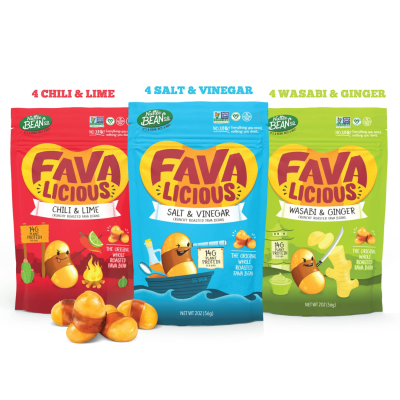
Favalicious Variety Pack – 2 oz
$29.99
Add to cart -
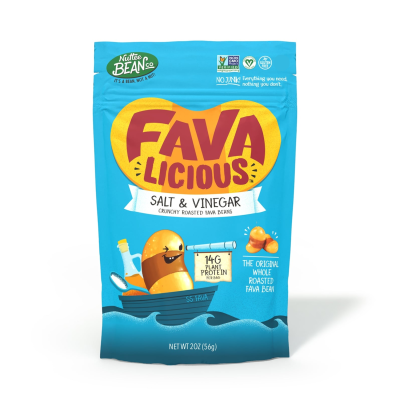
Favalicious Salt & Vinegar Fava Beans (12 Pack)- 2 oz.
$29.99
Add to cart
Favalicious Beans The Power Snack.
Favalicious Beans The Power Snack.
Favalicious Beans The Power Snack.
Favalicious Beans The Power Snack.
WORLD FLAVORS COLLECTION
The Power Snack.
LEVEL UP your snacking GAME with 14 GRAMS of PLANT PROTEIN per bag Favalicious is the fava bean, no-junk, high protein snack you need to power through the day.
A very special collaboration
We’ve been hard at work in the flavour studio to bring you three chart-topping custom blends that’ll guarantee you never have to wing it with your wings again
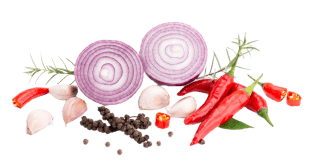
It’s a bean, not a nut!
Follow Us On Instagram
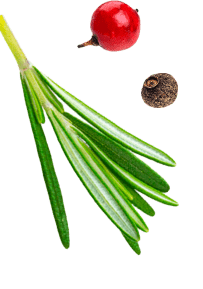
the people are talking
I love all the products I’ve purchased! I especially love the upgraded hinges that most don’t have!
![]()
Carolyn Salzmann Verified Purchase
I love this taco seasoning! I got tired of buying the packets for recipes and this container is a game changer.
![]()
Destiny Langwell Verified Purchase
It is amazing how one small packet of Taco Seasoning can charge up leftovers into a whole new meal.
![]()
Clara Hany Verified Purchase
Check out our Instagram
